Tiger tales
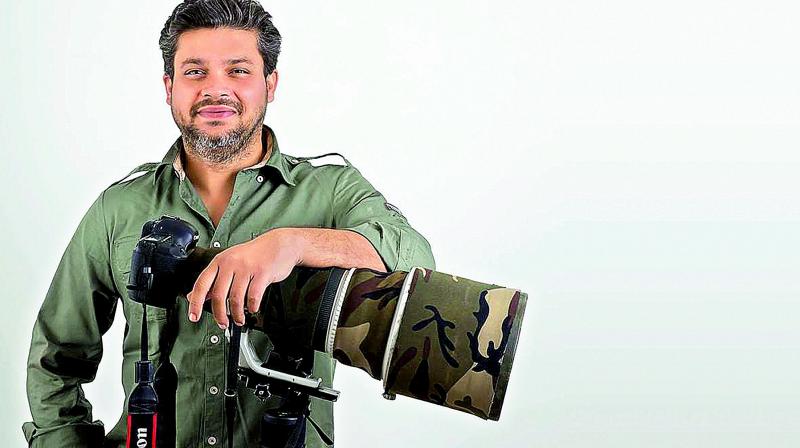
Vijaya knew the weakness of Lakshmi and advanced towards her in what seemed to be a lost battle for Lakshmi. However, the physically disabled mother put up a brave fight, making things difficult for young Vijaya. An encounter that seemingly lasted for the whole night resulted in much bloodshed, and some extraordinary tiger behaviour was recorded on that fatal night — Vijaya, in her fury, had not only killed Lakshmi but had also consumed more than half of her body. If tigers are your favourite big cats, the travel destinations that naturally pop into your head are Ranthambhore, Tadoba, Bandhavgarh, Corbett and Pench. However, for those who cannot leave their cosy homes and take a walk in the wild, Shivang Mehta’s latest book, A Decade with Tigers, will come to your rescue. The author got up close and personal with powerful carnivores in these regions. From tiger mothers and male tigers to denizens of the tiger kingdom, the book is surely a treat for tiger lovers.
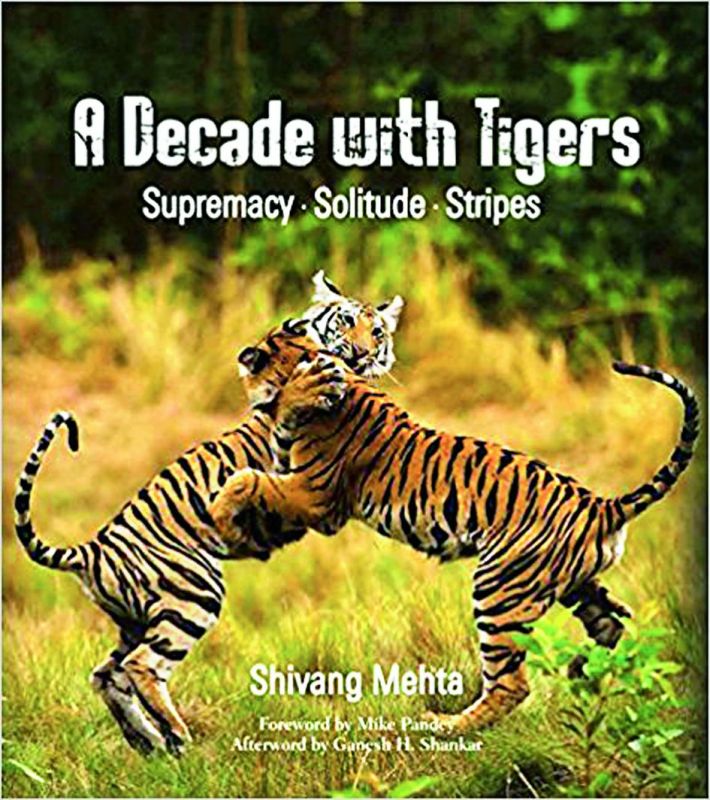 A Decade with Tigers by Shivang Mehta Rs 1,750, pp 360 Niyogi Books
A Decade with Tigers by Shivang Mehta Rs 1,750, pp 360 Niyogi Books
“The book is a tribute to the tigers of India,” says the nature photographer and avid traveller, who was previously a journalist turned PR professional. He now conducts field wildlife photography workshops. The book not only narrates stories of iconic tigers in the last 10 years, but also tells us how unique each tiger is. Bandhavgarh has the most interesting stories — the infamous Vijaya and her litter, Lakshmi and Shashi will leave you amazed. Ranthambore too has tales of the legendary Machali and her litter Sundari and Krishna, and the charismatic Noor and Ustad and their son Sultan.
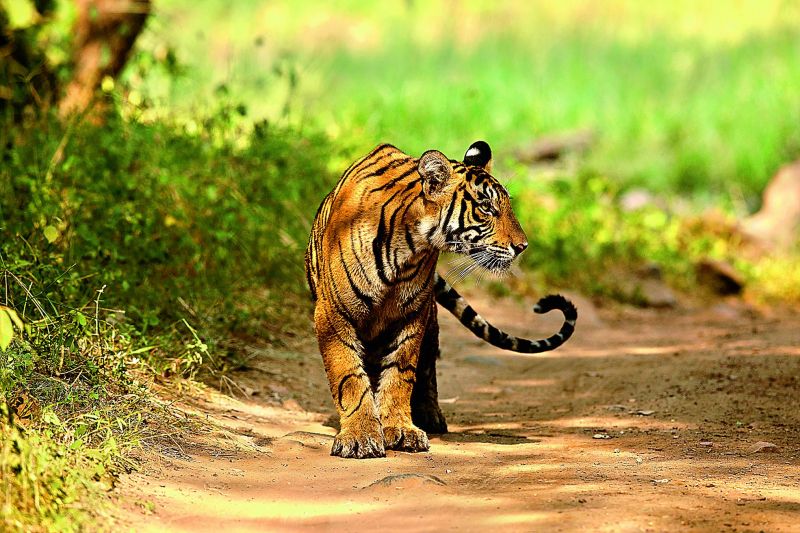
Shivang says, “I started writing the book in January 2016 and I have been working on the images for a decade. But storytelling is challenging. The book was supposed to be only on Vijaya, but she died after she gave birth to her second litter. So there are such challenges in the wildlife when you try to do stories around it. I soon got more characters into the book.” Talking about the response it received, he adds, “It has been quite good. Though people have written such books in the past, the presentation here is unique. It’s not just some coffee table book. There are many interesting stories.”
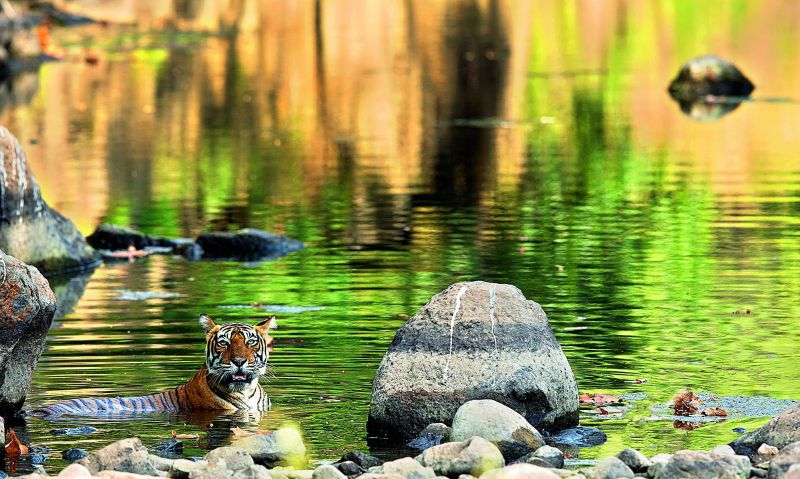
One such interesting story is that of Sundari, who was finding it difficult to conceive for a long time. One day, she was spotted climbing into a mosque. She stopped and licked the shrine before exiting the premises and entered a temple opposite the mosque. People wondered if she was taking blessings from god. Talking about this unique behaviour, Shivang says, “It was an interesting observation I made. People humanised the whole situation as she couldn’t give birth. This often happens with the advent of social media and I find it very interesting. Similarly, when a tigress named Krishna was mating with Zalim, people were perplexed as they thought they were from different religions!”
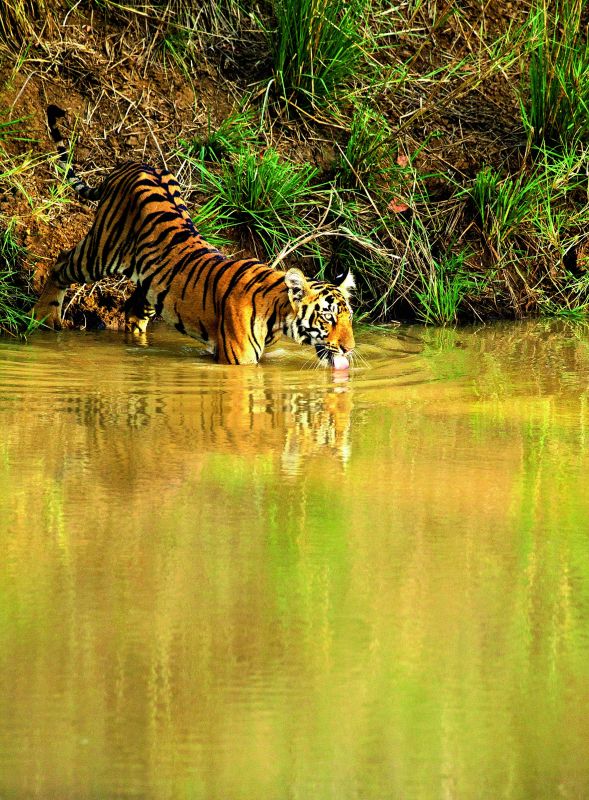
Tiger romance is something that would intrigue one too. For instance, Krishna once left Zalim in the middle of mating in April 2013 and rushed to the lakes to meet Star. They were caught royally romancing at the Rajbagh Palace. There are many stories of jungle romance in the book. Pench, on the other hand, has tales about the famous collarwali, who even entered the Guinness Records for being the most productive wild tiger mother in the world. She was also one of the cubs featured on BBC. Corbett, too, has some magnificent stories and shots of tigers such as Paro. However, no tiger is elaborately described like the warrior queen of Bandhavgarh, Vijaya.
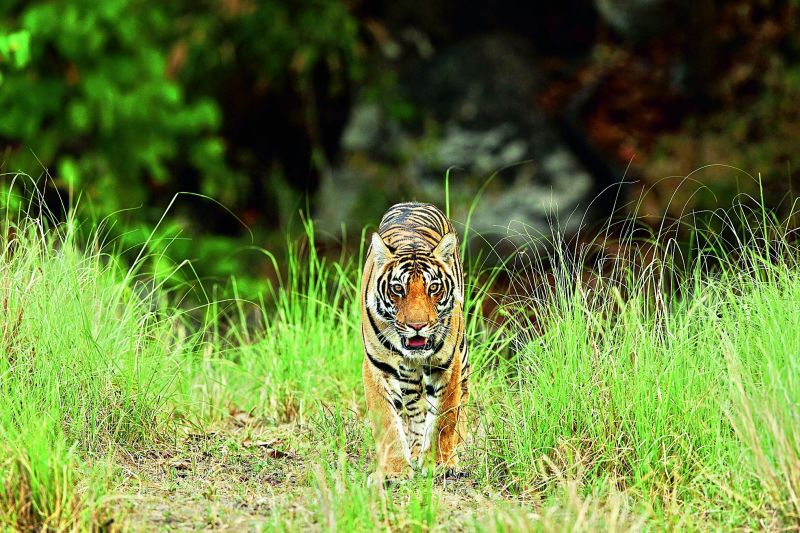
“I had an emotional connect with Vijaya. She was someone who was not liked by many as she had just one eye. Photographers didn’t want to photograph her. She had also killed Lakshmi, who many liked. But, I had belief in Vijaya. I thought if she rises above all this, it will be interesting. Her hunting tactics were different and she was unique. When she died, it was an emotional moment for me,” explains Shivang, adding that Machali Jr, also known as Arrowhead and the Krishna family are his next favourites.
The author also reveals that capturing tigresses along with their cubs is more interesting than capturing their male counterparts. “Tigresses are more fascinating and so are their little ones. Tiger is considered a supreme animal, but when you look at cubs being trained or going for their first kill, you will see that they do not know anything. The behavioural patterns are fascinating. Also, every tigress is a unique mother,” he says. Shivang did have his share of dangerous encounters in the wild as well. “As a wildlife photographer, I take care of all the safety measures. However, we should know that we are in their home and not harm animals in any way. That’s the most important thing,” he says.
The wildlife photographer has also some stunning shots of Asiatic elephants, langurs, jackals, wild buffalos, leopards, sloth bears and spotted dears in the book. But his interest clearly lies in tiger photography. He explains, “Around 15 years ago I was in Corbett as any other tourist. The tigers I saw there transformed my life. I had an inclination to know more about them. Not only did I begin reading more books about them, but also gave up my corporate career for them.”
So what does he advice upcoming wildlife photographers? “Wildlife photography is a game of patience and perseverance. People shy away from it, but one only needs hard work. Understand the species well and keep working on your images,” says Shivang, whose wife and daughter have been very supportive of his career. After the success of his first book, Shivang says that he would like to pen more books in the future. “I am glad that wildlife photography has progressed in India. We should work harder and project ourselves on the global map. When it comes to writing more books on wildlife, I have something on my mind. I would like to pen a book on Africa as the wildlife is stunning there. I plan to publish it in the next one or two years,” he concludes.

